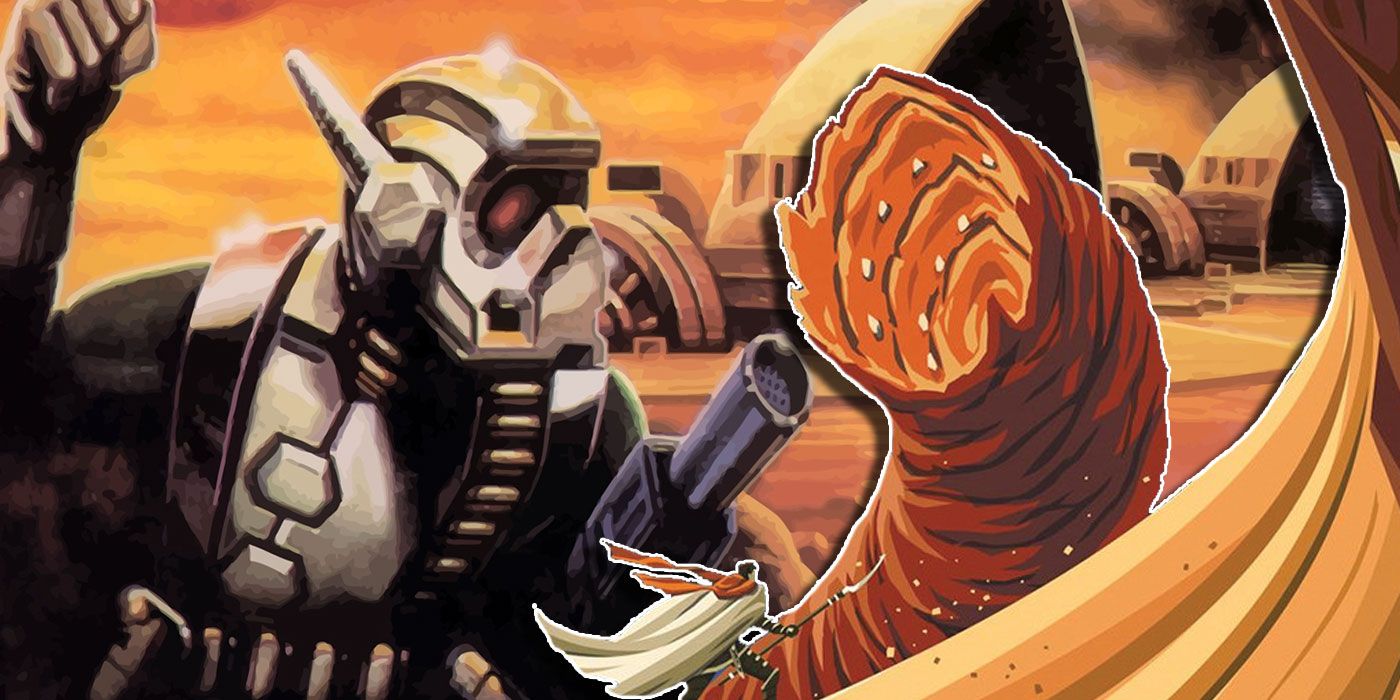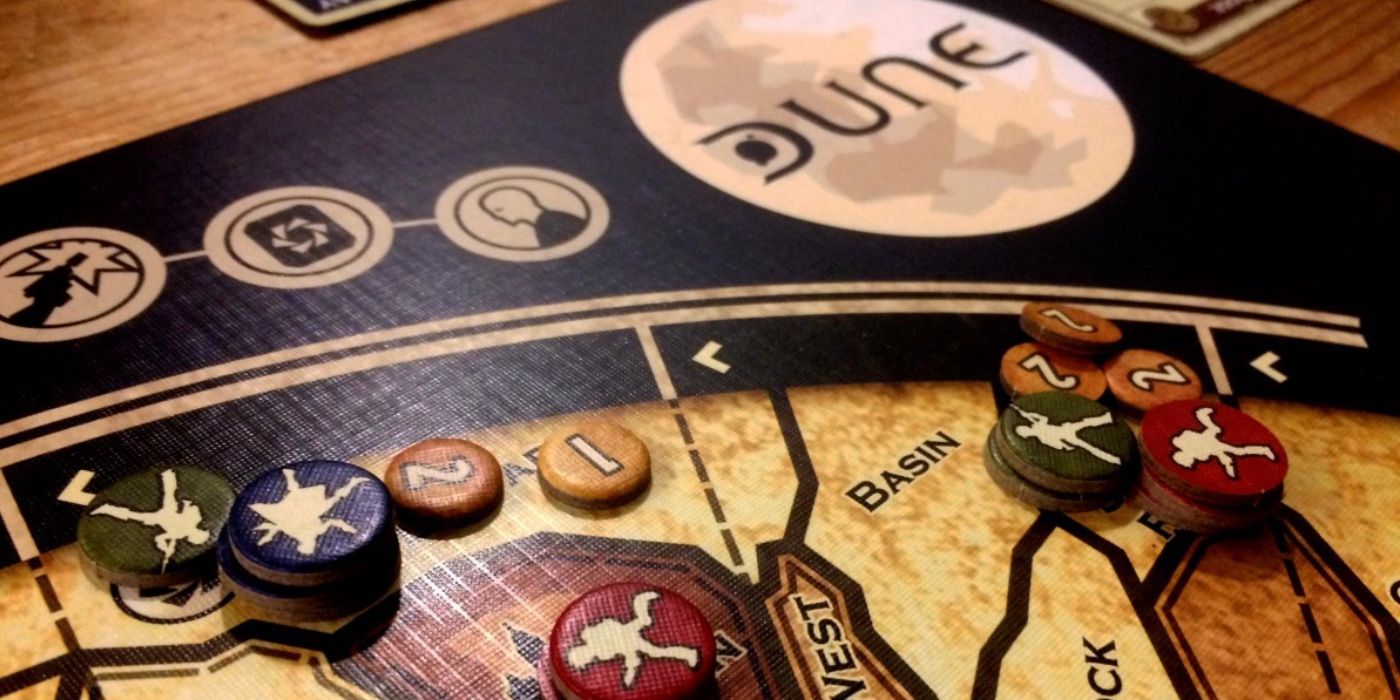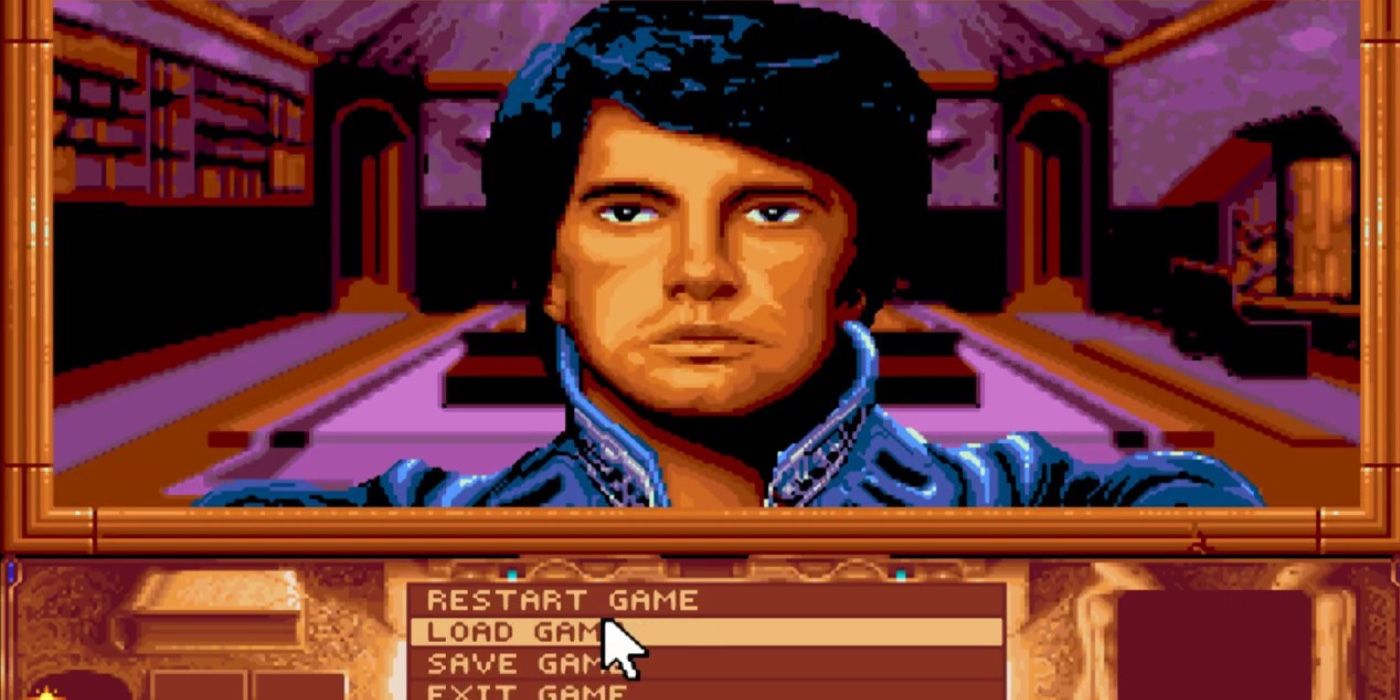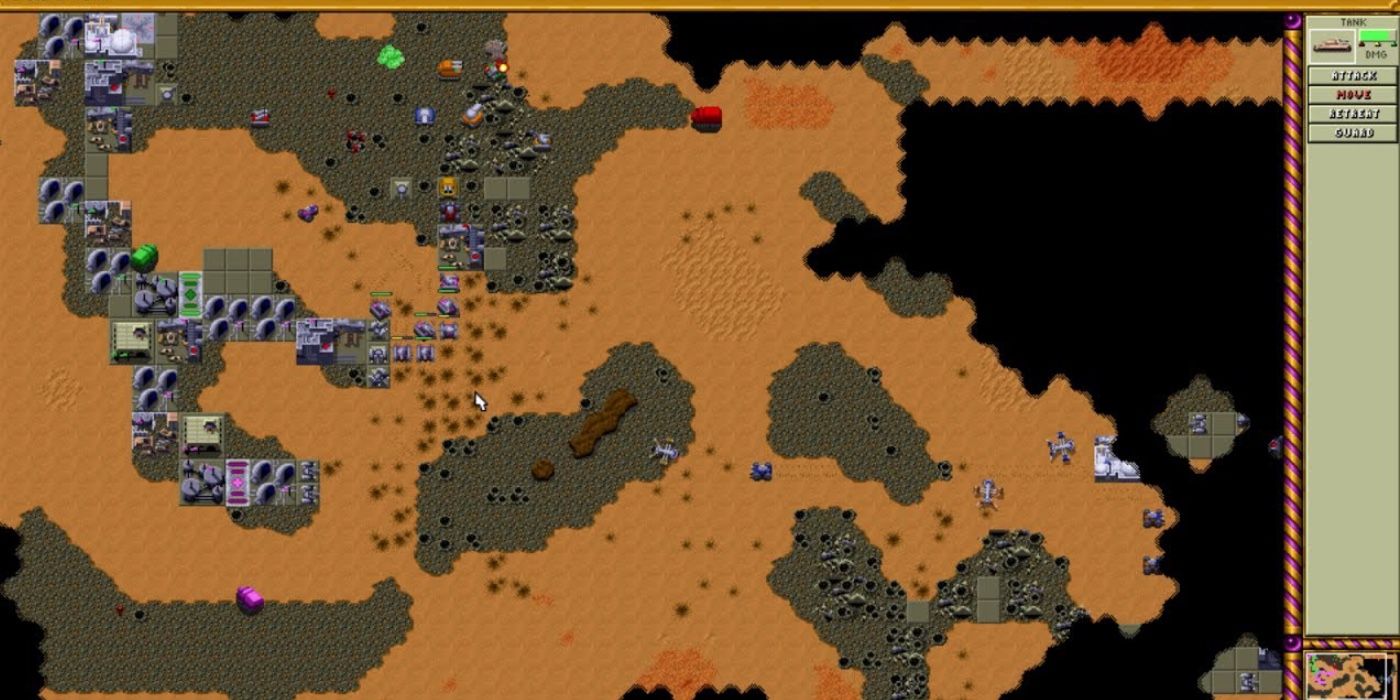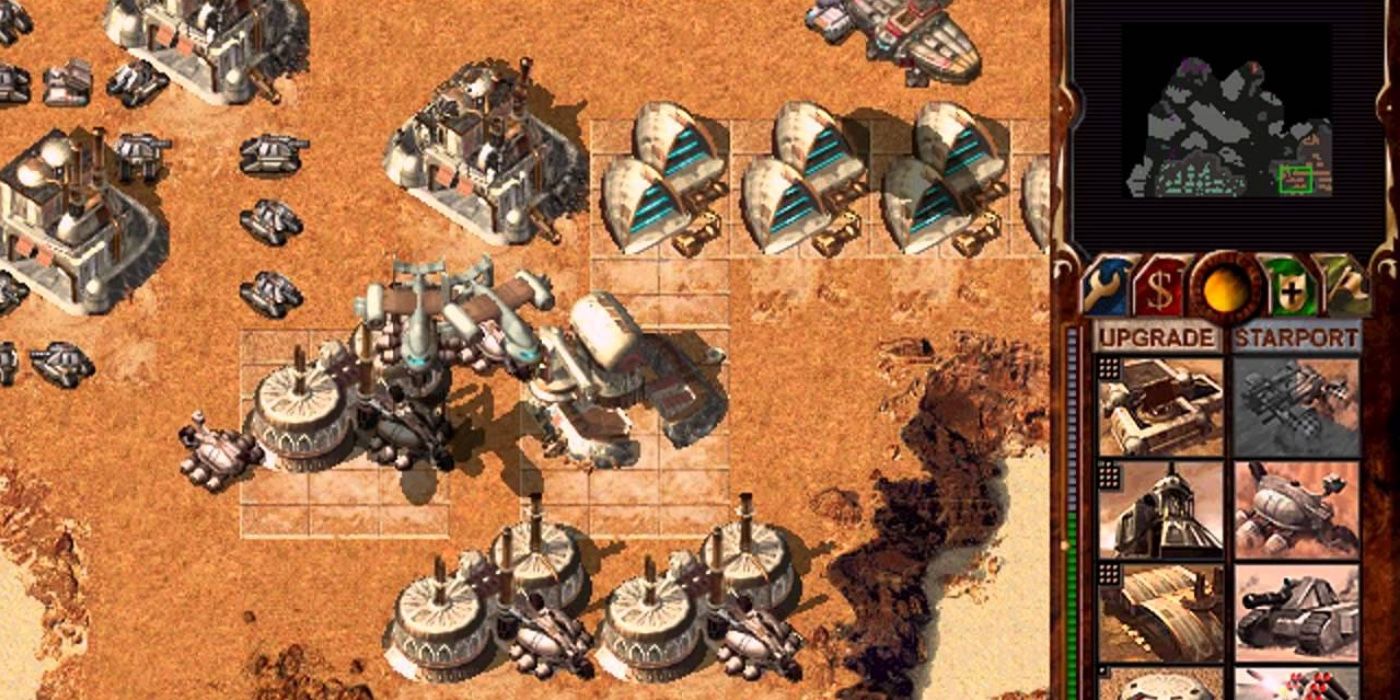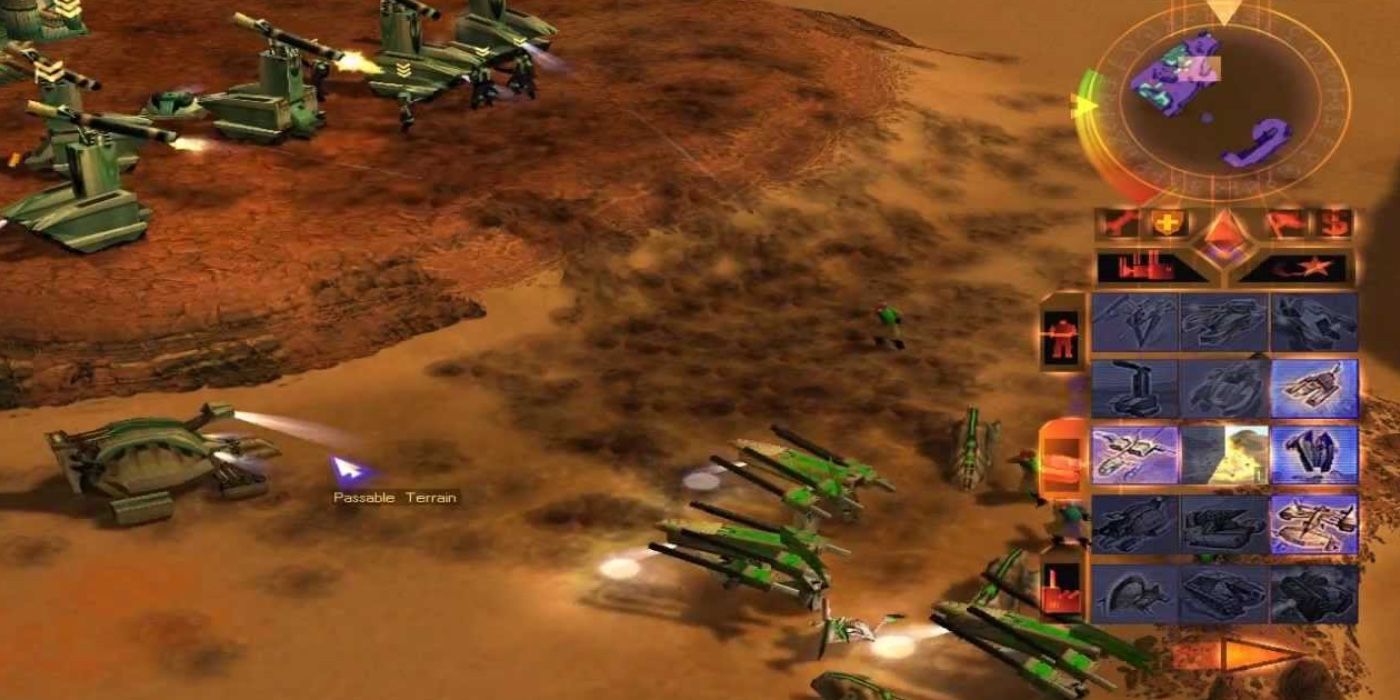The Dune universe has a long history, going back to the '60s. First created by Frank Herbert, Dune is so old that elements of its universe have inspired sci-fi that we know and love today. This can be seen from the space opera adventure of Star Wars to the galaxy-spanning empires of Warhammer 40k.
Since it's release, there have been not only new books and movies but a number of board games and video games that delve into Dune. With the announcement of the new film from director Denis Villeneuve, there's no better time than now to venture into Dune's gaming past.
Dune Board Game (1979)
The first board game based on the universe, each player takes control of the groups vying for control of the planet Arrakis, also known as Dune. Players must compete to take the territories and strongholds on the board, engaging in battles while trying to avoid natural hazards such as sandstorms and giant sandworms. The factions include House Atreides, House Harkonnen, the Bene Gesserit, the Padishah Emperor, the Fremen and the Spacing Guild. Players can either play on their own or in alliances with other factions. This game also came with two expansions called Spice Harvest and The Duel, both of which add new mechanics to the game.
In advance of the upcoming film, this board game received a true reprint by Gale Force Nine in 2019. This makes it one of the few Dune games that most fans have a chance of playing today.
Dune (1992)
One of the first games set in the classic sci-fi universe, this entry is told through the eyes of the main protagonist of the series, Paul Atreides, and is considered closer to the source material than other games. Developed by Cryo Interactive, Dune is a mix of real-time strategy and an action-adventure game. Gameplay often switches between a dungeon crawler and a top-down strategy-based game. It also included footage from the original David Lynch film, as well as voice-acting from nearly all the original actors.
During development, a crisis occurred when publisher Virgin Games went through a change in management and threatened to cancel the game. The team then decided to continue working on the game in secret, managing to change the publisher's minds when presented with a well-received prototype. This was also one of the first floppy disk games to be ported to the new CD format.
Dune 2: The Building of a Dynasty (1992)
Released later in the same year as the first Dune game, Dune 2 sees the Emperor declare sole ownership of planet Arrakis will go to the great house that produces the largest spice harvest. Players choose from three playable factions: House Atreides, House Harkonnen and the non-canon House Ordos.
This iteration of the struggle for the coveted planet takes place as a real-time strategy game in the top-down format. Dune 2 isn't just notable as a well-received Dune game, though; it's the earliest entry into the RTS genre, with many crediting it for the rise of traditional RTS games in the following years.
Dune: Chronicles of The Imperium (2000)
This version of the story takes a bold step in the form of an RPG. Players could create their own characters, allied to the faction of their choosing, and through their decisions, affect the story and ending.
While ambitious and positively received by fans, developer Last Unicorn Games got into a legal dispute over licensing rights. As a result, the game shipped only a limited release of 3,000 copies. This one is tragic in that so few people could experience this ambitious game before it was discontinued, and the company was shut down.
Emperor: Battle for Dune (2001)
While the majority of Dune games are focused on the first novel and the rise of Paul Atreides, this is one of the only entries that focuses a story on the aftermath, acting as a direct sequel to Dune 2 and Dune 2000. Like its predecessors, it is a real-time strategy game where the factions of the previous games are now competing for an even bigger prize than just one planet.
The Emperor from the previous game was assassinated, throwing the Landsraad, known as the assembly of all noble houses in the Empire, into chaos. The houses Atreides, Harkonnen and Ordos now compete for the throne and title of Emperor of the Known Universe. While the sequel had no graphical or AI improvements to previous games, fans did appreciate a game that focused more on the sequel novels of Dune, rather than the first story all over again.

